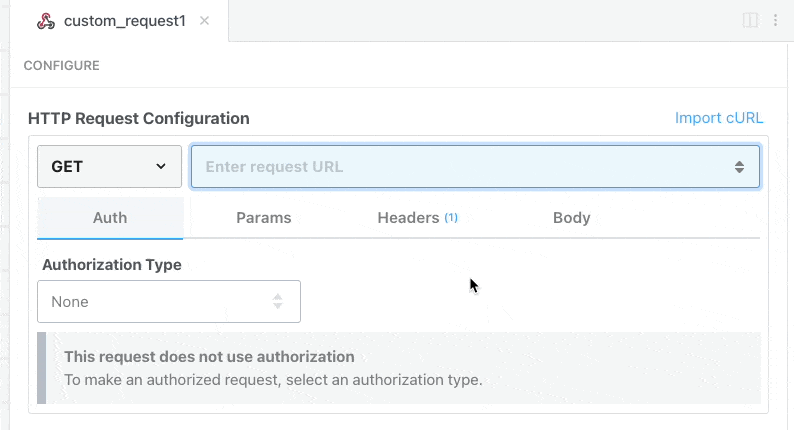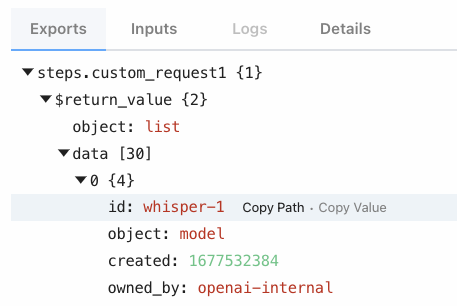What do you want to automate
with PagerDuty and HTTP / Webhook?
Prompt, edit and deploy AI agents that connect to PagerDuty, HTTP / Webhook and 3,000+ other apps in seconds.
Trusted by 1,000,000+ developers from startups to Fortune 500 companies
Popular Ways to Connect PagerDuty with HTTP / Webhook#
Popular PagerDuty and HTTP / Webhook Triggers#
Get a URL and emit the full HTTP event on every request (including headers and query parameters). You can also configure the HTTP response code, body, and more.
Get a URL and emit the HTTP body as an event on every request
Emit new event each time a new user rotates onto an on-call rotation
Emit new event each time an incident is created or updated
Emit new event when the content of the URL changes.
Popular PagerDuty and HTTP / Webhook Actions#
Find the user on call for a specific schedule. See the docs here
Send an HTTP request using any method and URL. Optionally configure query string parameters, headers, and basic auth.
Send an HTTP GET request to any URL. Optionally configure query string parameters, headers and basic auth.
Overview of PagerDuty#
The PagerDuty API offers a powerful interface to automate your digital operations management. By leveraging its capabilities on Pipedream, you can create workflows that respond to incidents, automate alerts, and synchronize incident data across various platforms. PagerDuty's API enables you to manage services, teams, and incidents, ensuring that your systems remain operational and that the right people are notified at the right time.
Connect PagerDuty#
import { axios } from "@pipedream/platform"
export default defineComponent({
props: {
pagerduty: {
type: "app",
app: "pagerduty",
}
},
async run({steps, $}) {
return await axios($, {
url: `https://api.pagerduty.com/users/me`,
headers: {
Authorization: `Bearer ${this.pagerduty.$auth.oauth_access_token}`,
"Accept": `application/vnd.pagerduty+json;version=2`,
},
})
},
})
Overview of HTTP / Webhook#
Build, test, and send HTTP requests without code using your Pipedream workflows. The HTTP / Webhook action is a tool to build HTTP requests with a Postman-like graphical interface.

Point and click HTTP requests
Define the target URL, HTTP verb, headers, query parameters, and payload body without writing custom code.

Focus on integrating, not authenticating
This action can also use your connected accounts with third-party APIs. Selecting an integrated app will automatically update the request’s headers to authenticate with the app properly, and even inject your token dynamically.

Pipedream integrates with thousands of APIs, but if you can’t find a Pipedream integration simply use Environment Variables in your request headers to authenticate with.
Compatible with no code actions or Node.js and Python
The HTTP/Webhook action exports HTTP response data for use in subsequent workflow steps, enabling easy data transformation, further API calls, database storage, and more.
Response data is available for both coded (Node.js, Python) and no-code steps within your workflow.

Connect HTTP / Webhook#
// To use any npm package on Pipedream, just import it
import axios from "axios"
export default defineComponent({
async run({ steps, $ }) {
const { data } = await axios({
method: "GET",
url: "https://pokeapi.co/api/v2/pokemon/charizard",
})
return data.species
},
})
Related Videos#

Community Posts#

